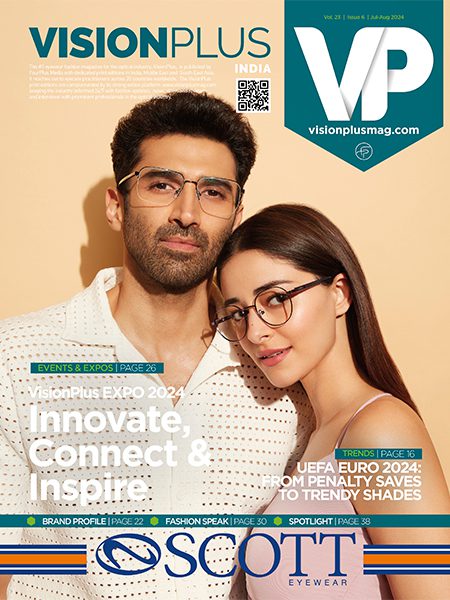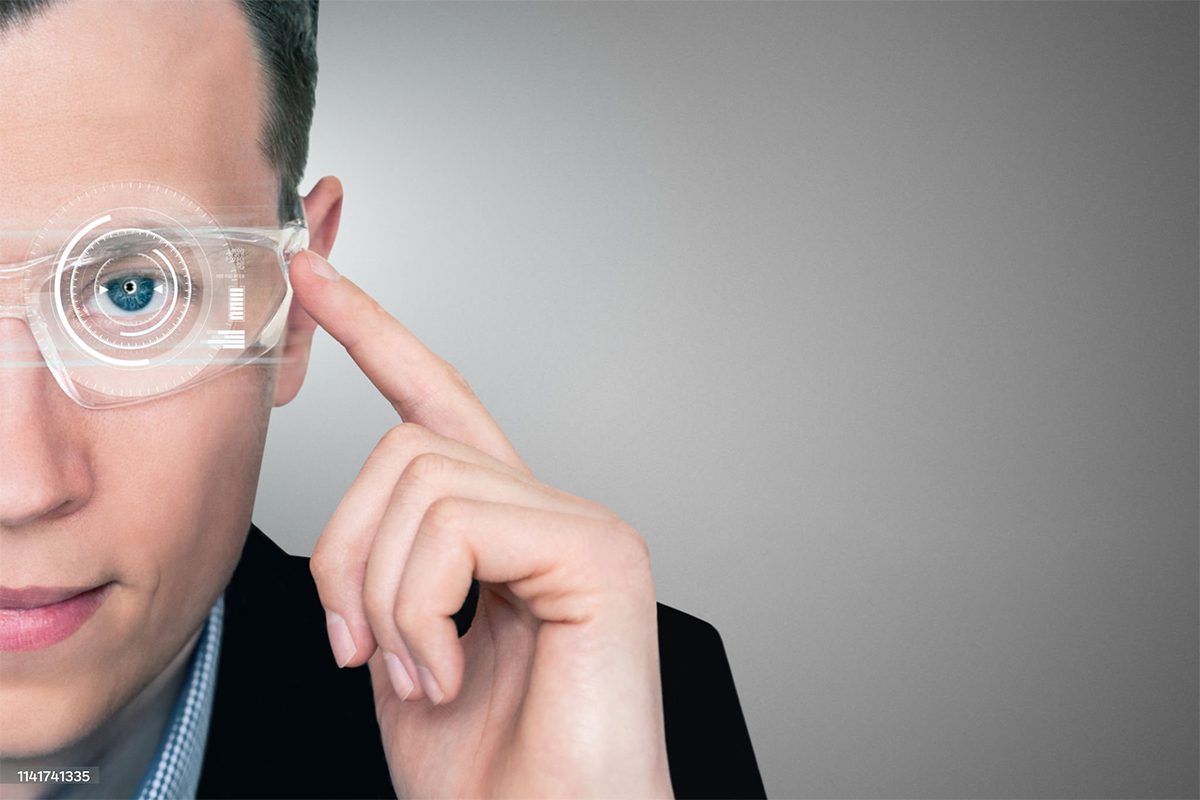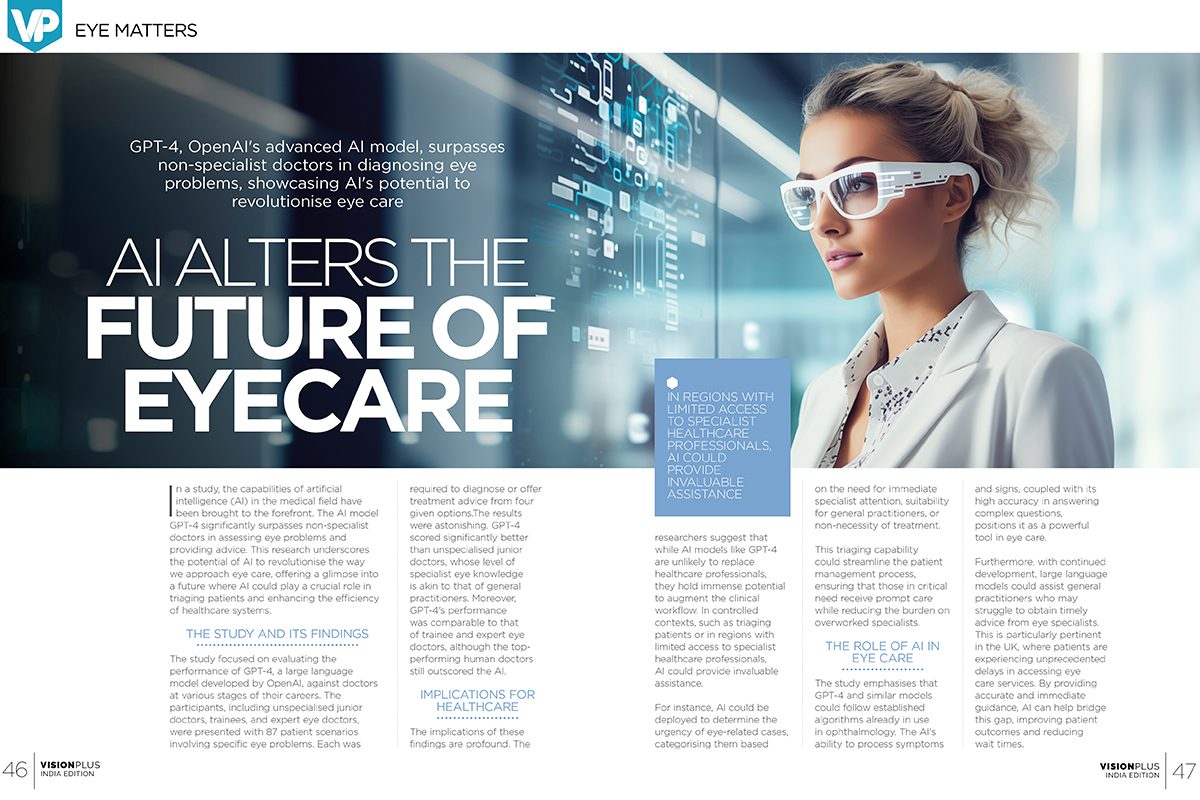
AI Alters The Future Of Eyecare
GPT-4, OpenAI's advanced AI model, surpasses non-specialist doctors in diagnosing eye problems, showcasing AI's potential to revolutionise eye care
In a study, the capabilities of artificial intelligence (AI) in the medical field have been brought to the forefront. The AI model GPT-4 significantly surpasses non-specialist doctors in assessing eye problems and providing advice. This research underscores the potential of AI to revolutionise the way we approach eye care, offering a glimpse into a future where AI could play a crucial role in triaging patients and enhancing the efficiency of healthcare systems.
The Study And Its Findings
The study focused on evaluating the performance of GPT-4, a large language model developed by OpenAI, against doctors at various stages of their careers. The participants, including unspecialised junior doctors, trainees, and expert eye doctors, were presented with 87 patient scenarios involving specific eye problems. Each was required to diagnose or offer treatment advice from four given options.The results were astonishing. GPT-4 scored significantly better than unspecialised junior doctors, whose level of specialist eye knowledge is akin to that of general practitioners. Moreover, GPT-4's performance was comparable to that of trainee and expert eye doctors, although the top-performing human doctors still outscored the AI.
Implications For Healthcare
The implications of these findings are profound. The researchers suggest that while AI models like GPT-4 are unlikely to replace healthcare professionals, they hold immense potential to augment the clinical workflow. In controlled contexts, such as triaging patients or in regions with limited access to specialist healthcare professionals, AI could provide invaluable assistance.
For instance, AI could be deployed to determine the urgency of eye-related cases, categorising them based on the need for immediate specialist attention, suitability for general practitioners, or non-necessity of treatment.
This triaging capability could streamline the patient management process, ensuring that those in critical need receive prompt care while reducing the burden on overworked specialists.
The Role of AI in Eye Care
The study emphasises that GPT-4 and similar models could follow established algorithms already in use in ophthalmology. The AI's ability to process symptoms and signs, coupled with its high accuracy in answering complex questions, positions it as a powerful tool in eye care.
Furthermore, with continued development, large language models could assist general practitioners who may struggle to obtain timely advice from eye specialists. This is particularly pertinent in the UK, where patients are experiencing unprecedented delays in accessing eye care services. By providing accurate and immediate guidance, AI can help bridge this gap, improving patient outcomes and reducing
wait times.
 The Need For Clinical Texts And Fine-Tuning
The Need For Clinical Texts And Fine-Tuning
The advancement of AI in healthcare hinges on the availability of large volumes of clinical text for fine-tuning and development. Researchers worldwide are working tirelessly to facilitate this, recognising the importance of refining AI models to ensure their reliability and accuracy.
This study stands out from previous research by comparing AI's capabilities directly with practising doctors rather than exam results. As doctors do not constantly prepare for exams throughout their careers, this approach offers a more realistic assessment of AI's practical utility in real-world medical scenarios.
Challenges And Future Directions
Despite the promising results, the integration of AI into healthcare is not without challenges. The capabilities and limitations of commercially available models need thorough characterisation, especially as patients increasingly turn to AI-driven tools for medical advice. Ensuring that AI systems are accurate, reliable, and safe is paramount.
The study included questions about a broad range of eye problems, from extreme light sensitivity and decreased vision to lesions and itchy, painful eyes. These scenarios were derived from a textbook used to test trainee eye doctors, a resource not freely available on the internet, making it unlikely that GPT-4's training datasets included its content. This ensures that the AI's performance reflects genuine reasoning and knowledge application rather than mere replication of learned material.
AI And The Future Of Patient Care
Looking ahead, the role of AI in patient care will likely continue to evolve. While AI models like GPT-4 are not poised to replace doctors, they can significantly enhance patient care by providing timely, accurate advice and supporting healthcare professionals in their decision-making processes.
The study's findings highlight the potential for AI to empower patients, giving them the option to incorporate computer systems into their healthcare journey. This will ultimately be a personal decision for each patient, influenced by their comfort level with technology and trust in AI-driven tools.
The rapid advancement of AI in healthcare, particularly in eye care, is a testament to the transformative potential of technology. As large language models like GPT-4 continue to improve, they offer a promising avenue for enhancing the efficiency and effectiveness of medical care. By complementing the expertise of healthcare professionals, AI can help address current challenges, streamline patient management, and ultimately improve health outcomes.







